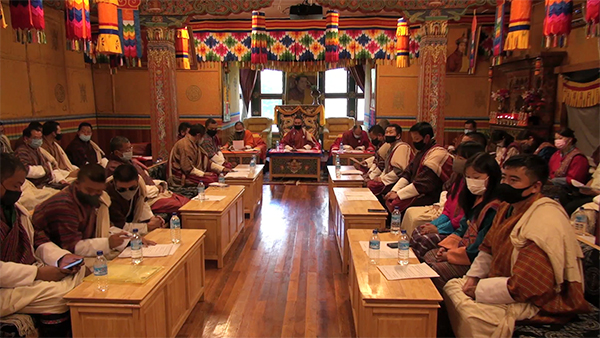 The people of Toedpaisa Gewog in Punakha are facing difficulty in extracting rural housing timbers. Today, they have to travel about 50 kilometres to fetch such timbers. And so, during the recent Dzongkhag Tshogdu, the Toedpaisa Gup proposed to allow the gewog’s people to fell trees from a forest located closer.
The people of Toedpaisa Gewog in Punakha are facing difficulty in extracting rural housing timbers. Today, they have to travel about 50 kilometres to fetch such timbers. And so, during the recent Dzongkhag Tshogdu, the Toedpaisa Gup proposed to allow the gewog’s people to fell trees from a forest located closer.
According to the Gup, earlier, when Barp and Toedpaisa Gewogs were under Thimphu, the villagers extracted rural housing timber from Hongtsho.
But after the gewogs fell under Punakha, the people had to get the timbers from from Kameychu in Wangdue Phodrang.
As per the Forest and Nature Conservation Amendment Rules and Regulations 2020, rural households are entitled to 18 Drashing or standing trees for constructing a two storey house once in 25 years.
Every year, the Toedpaisa Gewog administration receives about 10 to 15 applications for constructing houses.
“Since Punakha and Wangdue are under the same Forest Division, we get the housing timbers from Wangdue. But the current location is far away. So, the people face problems. They are restricted to extract timber which are closer to the gewog”, said Toedpaisa Gup Namgay Tenzin.
Forestry officials said a person with a permit is allowed to extract the timber from any government reserve forest. However, in some places, the residents are given the first preference. Outsiders are allowed only if there are excess trees for felling.
“I don’t know why they have been restricted. Actually, according to the forest acts and rules, as long as they have a permit, they are allowed to extract from any government reserve forest. I don’t understand why the people of Toedpaisa Gewog are not allowed to do so”, said Yeshey, Range Officer of Punakha.
“You said people could extract timbers from Hongtsho. So, you should find out why it has not been allowed and inform the Gup”, said Samten Phuntsho, the Dzongkhag Tshogdu Chairperson of Punakha
The range office will investigate the matter and submit its report to the district administration.
Changa Dorji, Punakha
Edited by Sonam Wangdi




